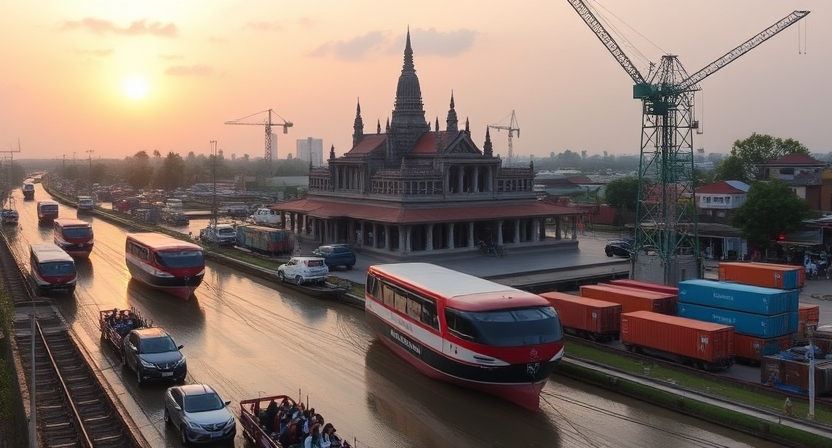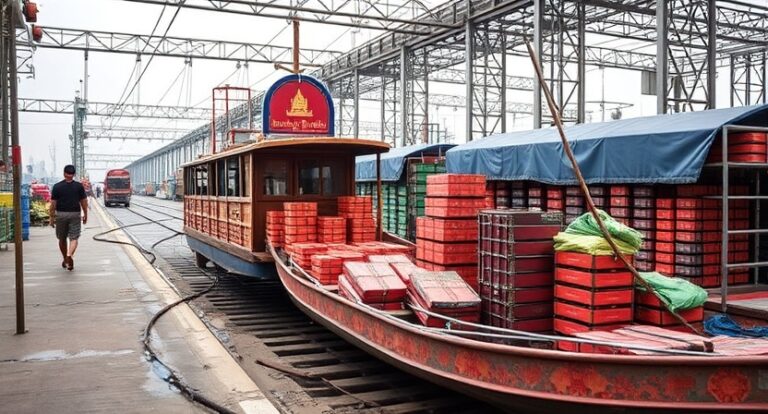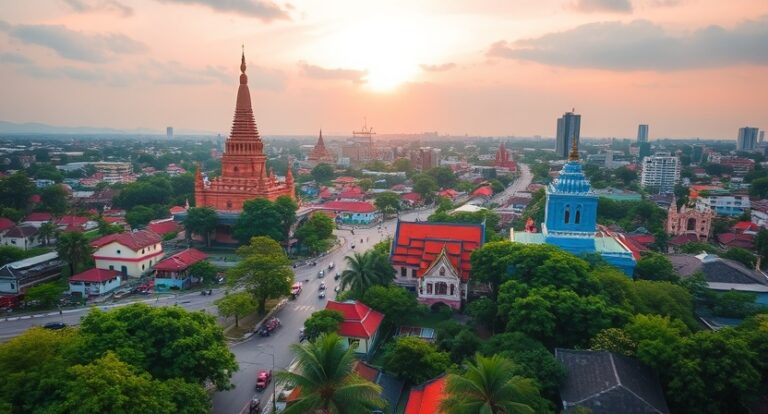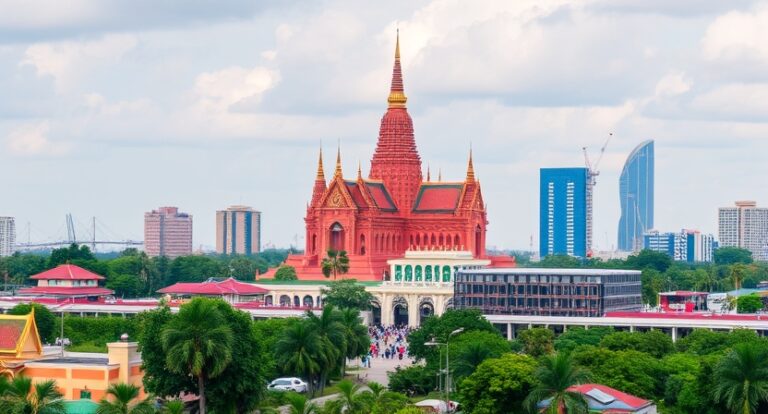The prospect of a second Trump presidency is raising concerns among investors regarding the future of Cambodia’s economic and market landscape. With expectations of increased U.S. protectionism and significant shifts in trade policies, a recent report by CBRE explores the potential risks and opportunities for Cambodia as it adapts to a rapidly changing global environment. For Asia sourcing agents and businesses relying on Cambodian exports, understanding these policy shifts is crucial for informed decision-making in the coming years.
The CBRE analysis suggests that a potential return to a more protectionist U.S. stance could result in the imposition of new tariffs or stricter trade terms, particularly affecting Cambodian exports. As Cambodia’s economy heavily depends on the garment, footwear, and agricultural sectors, changes in U.S. trade policy could result in higher production costs, making Cambodian goods less competitive in key international markets. For Asia sourcing agents, this could mean increased challenges in sourcing goods from Cambodia, potentially leading to higher prices and disruptions in supply chains.
One of the most concerning aspects of a shift in U.S. policy is the potential slowdown in foreign direct investment (FDI) into Cambodia. The CBRE report highlights that U.S. protectionist policies could deter foreign investors, including those in manufacturing and other export-driven industries that have been vital to Cambodia’s recent growth. Asia sourcing agents might face reduced investment from Western companies, potentially leading to slower growth in critical industries like textiles, footwear, and electronics. With a decline in FDI, Cambodia could experience slower industrial expansion, which would affect the overall economic performance, thereby impacting global sourcing strategies and supply chain reliability.
In light of these risks, Cambodia’s strategy for mitigating potential losses from changes in U.S. trade policy is diversification. The report stresses the importance of strengthening Cambodia’s economic ties with ASEAN, China, and European markets. By expanding trade relations within these regions, Cambodia can reduce its reliance on U.S. trade and lessen the impact of U.S. protectionism. For Asia sourcing agents, this diversification can present new sourcing opportunities in markets less affected by U.S. tariffs or trade barriers. Cambodia has already been actively seeking new trade agreements and strengthening economic relationships with regional partners, which could prove beneficial in maintaining trade flows and protecting its key industries from external shocks.
Impact on Cambodia’s Real Estate Sector
The real estate sector, a significant component of Cambodia’s economy, could face a slowdown if foreign investment continues to dwindle. International investors, particularly those from the U.S. and Western countries, may take a more cautious approach due to the perceived geopolitical risks associated with U.S. policy changes. If these trends continue, Cambodia’s property market could experience slower growth, and real estate developers might face increased challenges in attracting capital.
For Asia sourcing agents, the slowdown in real estate could result in a deceleration of industrial developments, which are essential for large-scale manufacturing and distribution hubs. Slower growth in commercial and industrial real estate could affect the availability of factory space, warehouses, and logistics infrastructure, which are crucial for businesses that depend on Cambodian exports.
To counter these risks, CBRE advises Cambodian developers to focus on boosting domestic demand and diversifying their portfolios. This can be achieved by prioritizing affordable housing and mixed-use developments that cater to local needs, rather than solely focusing on foreign investment-driven projects. Asia sourcing agents working within Cambodia should take note of this shift and consider opportunities within the local market that may be less affected by global investment volatility. By focusing on developments that serve domestic consumers and industries, Cambodia could maintain stability in the real estate sector even if foreign investment slows.
As Cambodia faces uncertainty from U.S. policy shifts, Asia sourcing agents and investors should be prepared for potential disruptions in trade, investment, and supply chains. While challenges exist, there are also opportunities to be found in Cambodia’s strategy for economic diversification and expanding regional partnerships. Key takeaways include:
- Monitor U.S. trade policy shifts: Stay updated on potential changes in tariffs and trade regulations affecting Cambodia’s exports, particularly in sectors like garments, footwear, and agriculture.
- Explore alternative markets: Diversifying trade relations with ASEAN, China, and Europe can reduce reliance on U.S. markets and mitigate the risks of a protectionist U.S. stance.
- Adapt sourcing strategies: In response to a potentially slower growth in manufacturing, Asia sourcing agents should consider sourcing from other regions or diversifying their product range to include goods from industries less vulnerable to changes in trade policies.
- Invest in Cambodia’s domestic market: As the real estate sector faces potential challenges from reduced foreign investment, local developments targeting affordable housing and mixed-use projects present a buffer against external market fluctuations.
- Stay flexible: Cambodia’s ability to pivot and adapt to changing global dynamics, especially in its trade relationships and investment strategies, will play a crucial role in maintaining its economic resilience.
The CBRE report paints a picture of an uncertain future for Cambodia’s economy, largely influenced by potential shifts in U.S. policy. As Cambodia navigates this evolving landscape, Asia sourcing agents and investors must remain agile and proactive in adjusting their strategies to safeguard against disruptions in trade, investment, and real estate. By diversifying economic partnerships, focusing on domestic market demand, and adapting sourcing and investment approaches, Cambodia can weather the storm of potential U.S. protectionism and continue to thrive in the regional market.



